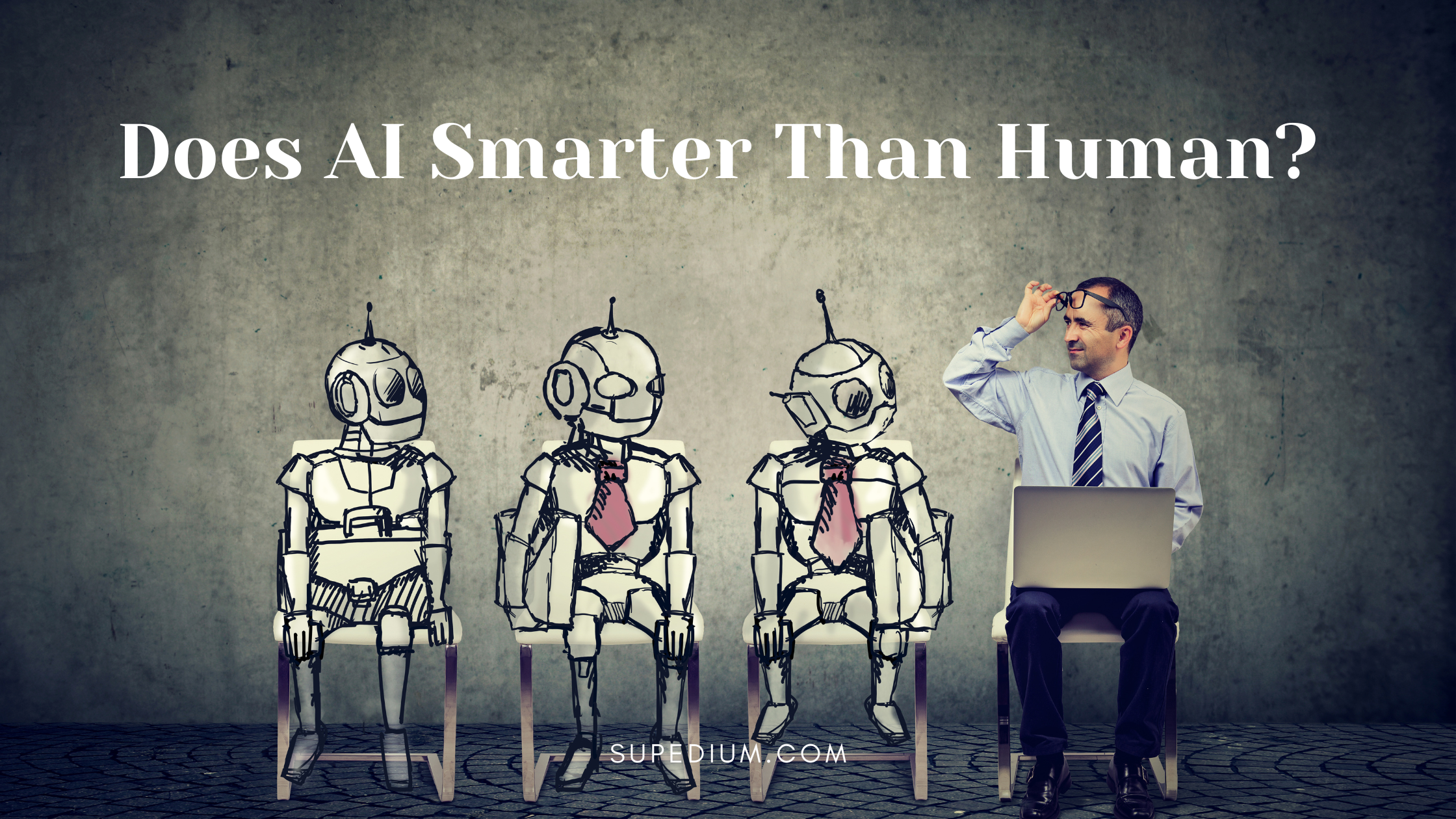Table of Contents
![]()
The question of whether AI is inherently smarter than humans is a complex one, as intelligence can be measured in different ways and can vary depending on the context. In this essay, we will explore five key points that highlight the differences and similarities between AI and human intelligence, and consider whether AI is truly smarter than humans.
AI systems can outperform humans in certain areas.
One of the key advantages of AI is its ability to process large amounts of data and make decisions based on that data. In some cases, AI systems can perform tasks more quickly and accurately than humans, such as analyzing vast amounts of data or solving complex mathematical equations. For example, AI algorithms are used in financial institutions to analyze large amounts of data and identify trends and patterns that would be impossible for a human to identify on their own.
Human intelligence is more flexible and adaptable than AI.
While AI systems are designed to learn and adapt to new situations, they are still limited by the rules and algorithms that are programmed into them. In contrast, the human brain is capable of continuous learning and adaptation throughout our lives. This allows us to learn new skills, adapt to new environments, and solve complex problems in ways that AI systems cannot. For example, a human can learn to play a musical instrument or speak a new language, while an AI system can only perform the tasks that it has been specifically programmed to do.
AI systems are limited by the data that they are trained on.
Another key difference between AI and human intelligence is the way that they learn and adapt. AI systems are typically trained on a fixed set of data, and do not adapt to new situations in the same way that a human brain does. This means that AI systems are limited by the data that they are trained on, and may not be able to perform well in situations that are different from the data that they were trained on. For example, an AI system that is trained on a dataset of images of cats may not be able to recognize a dog, because it has not seen examples of dogs in its training data.
Human intelligence is capable of emotions and creativity.
In addition to their flexible and adaptable nature, the human brain is also capable of emotions and creativity. This allows us to experience a wide range of emotions, such as joy, sorrow, and anger, and to express ourselves creatively through art, music, and writing. AI systems, on the other hand, are not capable of experiencing emotions or expressing themselves creatively. They are limited to the abilities and rules that are programmed into them, and do not have the ability to think outside the box or to come up with novel ideas.
The relationship between AI and humans is complex and dynamic.
Overall, it is not accurate to say that AI is inherently smarter than humans or vice versa. AI systems and the human brain have different strengths and weaknesses, and their intelligence depends on the specific tasks and context in which they are used. While AI has the potential to perform many tasks that were once thought to be exclusive to the human brain, it is not a replacement for the human brain and its unique abilities.
In conclusion, the question of whether AI is smarter than humans is a complex one. While AI systems can outperform humans in certain areas, such as data analysis and computational speed
Share This





Be the first to comment